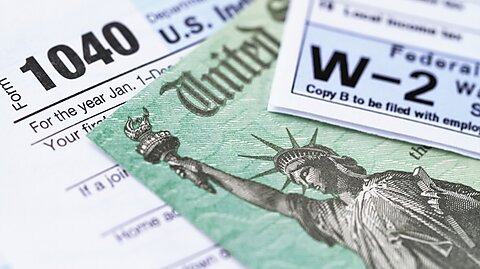Chris Edwards
The federal “tax gap” is the amount of taxes owed but not paid, essentially the amount of cheating on federal taxes. All tax systems have tax gaps, and there are pros and cons of using tougher enforcement to reduce the gap. The size of the federal tax gap is not a major problem, as it has been stable over time relative to the size of the economy and is smaller than the average gap in Europe.
The IRS released a new estimate of the tax gap yesterday, which it billed as a “significant jump from previous estimates.” But when compared to the size of the economy, the new estimate is not a significant jump. Despite much political rhetoric to the contrary, tax cheating is not a growing problem for the economy.
The gross tax gap in 2021 was $688 billion, according to the IRS. After late payments and enforcement actions, the net tax gap was $625 billion. Of the net total, $475 billion stemmed from individual income taxes, $37 billion from corporate income taxes, $112 billion from payroll taxes, and $1 billion from estate taxes.
The new report includes gross tax gap estimates for prior years. The dollar values of the tax gap have increased over time, but the gap is similar to previous estimates when compared to U.S. gross domestic product, as shown in the chart. I’ve used the GDP of the middle year for the multiyear gap estimates.
The flip side of the gross tax gap is the “voluntary compliance rate,” which is the tax paid on time divided by the estimated full amount owed. The IRS report shows that the voluntary compliance rate has hovered between 82 and 85 percent since 2001, and it was 84.9 percent in 2021.
No one likes tax cheating, especially when perpetrated by the rich and powerful. But there are civil liberties trade‐offs when the government tries to close the gap by overly vigorous enforcement and heavy‐handed regulations. The optimal tax gap is not zero because that would impose huge compliance costs on taxpayers and because the IRS makes frequent errors.
That said, there is a win‐win approach to reducing the tax gap. Simplifying the tax code and cutting tax rates would reduce the ability and incentive for taxpayers to cheat. It would also cut compliance costs and boost civil liberties. Congress should put tax simplification back on the agenda.
I discuss IRS funding and the tax gap in recent congressional testimony here.


























